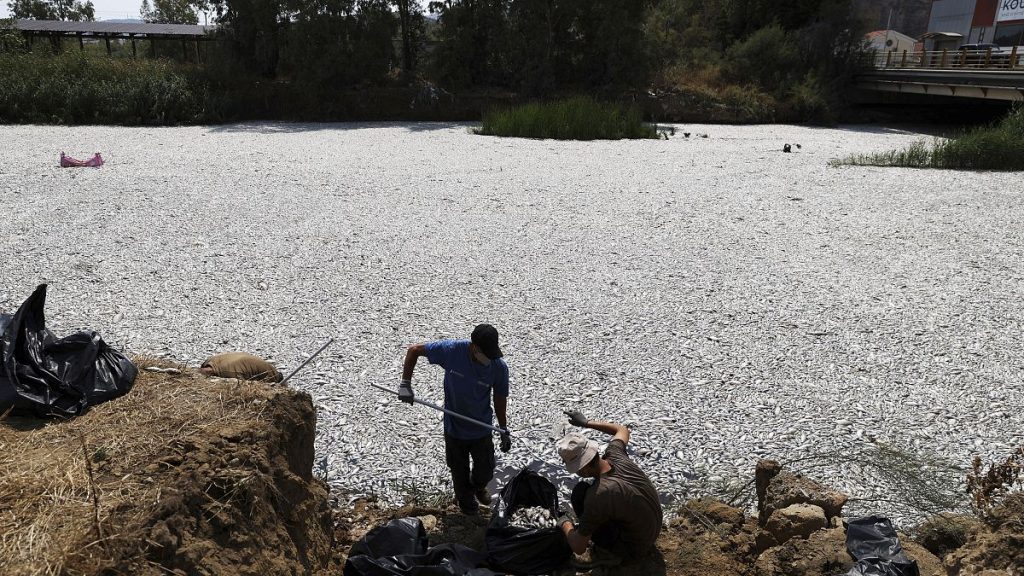Last year, flooding in central Greece caused the displacement of over 100 tonnes of dead freshwater fish into Volos Bay and nearby rivers. In response, Greek authorities have introduced a series of measures to support local businesses affected by the incident. These measures include subsidies for businesses experiencing a loss of turnover, suspension of tax and insurance payments, and the activation of the ‘Thessaly Pass’ scheme to promote regional tourism. The local government also plans to fund a comprehensive program to enhance the promotion of the area. Fishing trawlers have been employed to remove the dead fish from the sea and transport them to an incinerator for disposal. The fish originated from Lake Karla, which was restored in 2018 to combat drought effects after being drained in the early 1960s.
Water levels rose dramatically last autumn during a deadly storm that caused extensive flooding across central Greece. However, subsequent low rainfall and heatwaves during the summer have led to a receding of water levels. Experts attribute the mass death of freshwater fish to the absence of a net at the mouth of the river leading into Volos. When floodwaters carried the fish into the bay, they succumbed to the seawater environment. The deputy regional governor of central Thessaly, Anna Maria Papadimitriou, expressed the authorities’ commitment to swiftly resolving the situation. The regional governor has declared a state of emergency in response to the incident, highlighting the severity of the issue.
In the aftermath of the fish catastrophe, the mayor of Volos, Achilleas Beos, criticized the regional authority for its alleged slow response. Beos emphasized the unbearable stench emanating from the rotting fish and the potential environmental consequences posed by the situation. The city’s Chamber of Commerce reported a significant drop in commercial activity, particularly among businesses along the seafront, resulting in an estimated 80% decrease in tourism over three days. In response, the chamber announced legal action to seek damages for affected businesses and called attention to the negative impact on both residents and visitors due to the repulsive odor along the seafront.
The incident has underscored the vulnerability of coastal communities to environmental disasters and the importance of proactive measures to mitigate such challenges. The restoration of Lake Karla, initially drained decades ago and replenished in recent years, reflects efforts to address drought and ecological concerns in the region. However, the lack of protective measures at critical points such as the river mouth has highlighted the need for enhanced strategies to prevent debris, pollutants, and marine life from being carried into sensitive ecosystems. The response from Greek authorities, including the implementation of support measures for affected businesses, demonstrates a recognition of the economic and social impacts of environmental crises and a commitment to addressing them effectively.
As the cleanup efforts continue and the repercussions of the fish incident unfold in Volos and surrounding areas, there is a growing awareness of the interconnectedness of environmental, economic, and social factors in coastal regions. The resolution of the current crisis will require coordinated actions from governmental bodies, local communities, and businesses to mitigate the immediate effects and prevent similar incidents in the future. The lessons learned from this episode serve as a reminder of the fragility of ecosystems and the need for sustainable practices that safeguard the natural environment and support the livelihoods of those dependent on it. By prioritizing environmental protection, disaster preparedness, and community resilience, coastal communities like Volos can build a more sustainable and prosperous future.













